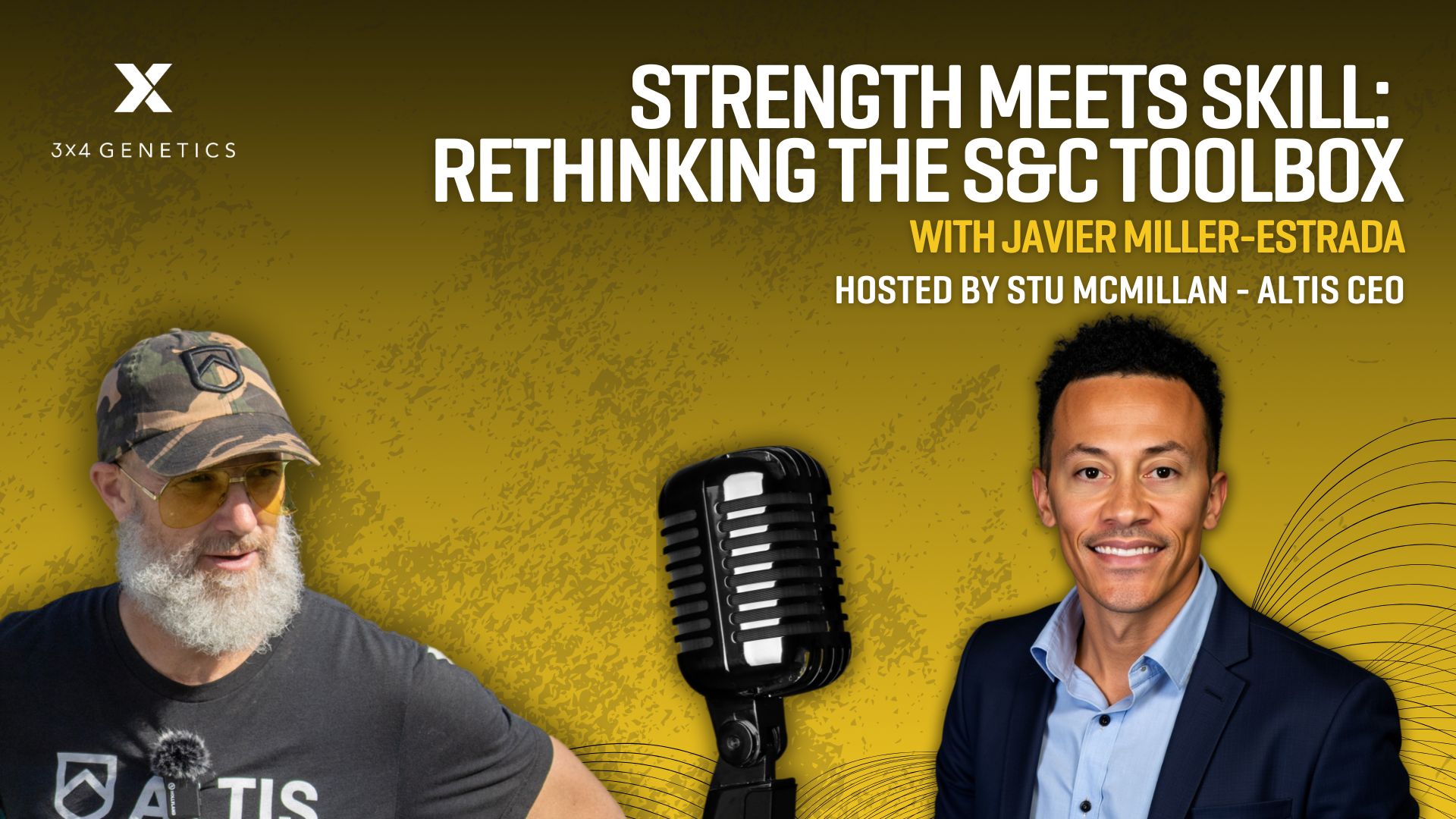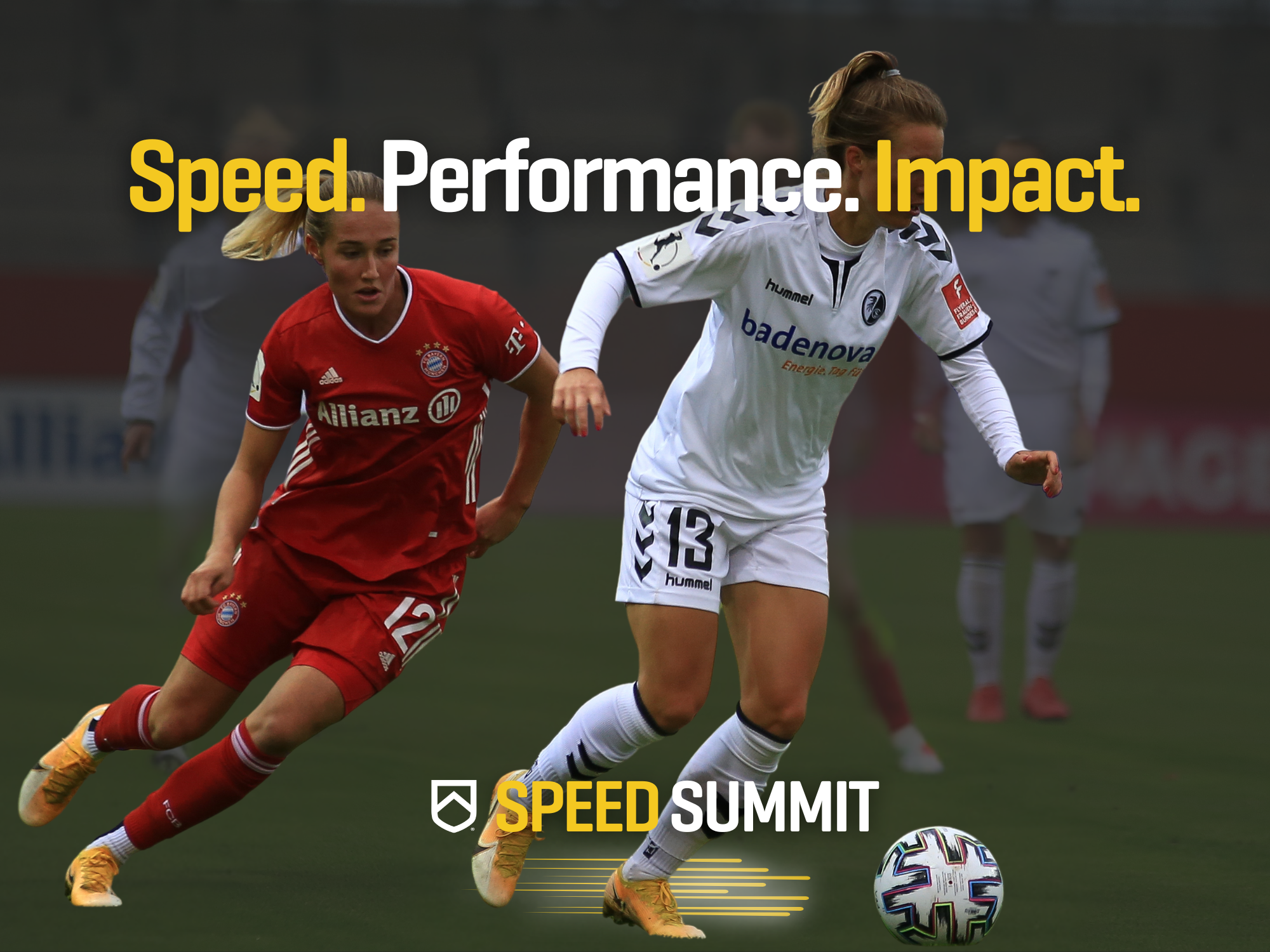Javier Miller-Estrada is a movement specialist, coach educator, and co-founder of Ignite Performance. He’s worked with hundreds of youth athletes and emerging professionals, and his influence continues to grow through his work with Emergence and the Adaptable Athlete Podcast.
His focus?
Helping athletes become more adaptable, resilient movers—not just in the gym, but where it matters most: in sport.
In Episode 5 of the ALTIS Speed Summit Podcast, Javier joins Stu McMillan for a conversation that will resonate with any coach serious about long-term athlete development. Talking about topics ranging from skill acquisition to session design, Javier brings both clarity and challenge to how we think about preparing athletes for sport.
In this article, we will explore some of the key themes and takeaways from the episode.
1. Coach the context, not just the outcome.
Javier doesn’t separate the athlete from the environment they’re performing in—and he challenges others to stop doing it too.
“Traditionally, the athlete and the environment are separate. In ecological dynamics, they’re inextricably linked.”
That means drills aren’t about repetition for its own sake—they’re about helping athletes learn to solve problems. And for that to happen, the design of your sessions matters.
2. Variability is a feature, not a flaw.
Where some coaches seek clean, repeatable patterns, Javier leans into messiness—because that’s where learning lives.
“We want the athlete to be able to solve a problem in as many ways as possible.”
Rather than chasing technical perfection, he’s more interested in repeatable outcomes across changing conditions. In his words: the game is unpredictable, so training should be too.
3. Athletes aren’t blank slates—they’re systems.
Every athlete walks in the door with a backstory. Their sleep, nutrition, stress levels, injury history, and coaching experiences all shape how they show up.
“Sometimes they’re coached on the field, then coached again by their parents in the car. So I don’t need to be the third coach. Sometimes they need me to just joke around and be light.”
Good coaching requires more than X’s and O’s—it requires reading the room and adjusting your role accordingly.
4. Simplicity isn’t always the answer.
Javier acknowledges that some of the terminology in this space—constraints, affordances, ecological dynamics—can feel like a barrier. But he cautions against dumbing it down too far.
“Many coaches don’t have a theory. They just do what they’ve always done. The goal isn’t to memorize terms—it’s to think critically about what you’re doing and why.”
You don’t need to be fluent in academic language to coach well. But having a framework helps, especially when things get messy.
5. Redefining success in youth sport.
The real value of training isn’t just in vertical jumps or 40-yard dash times. It’s in how it shapes an athlete’s relationship with movement and sport over the long term.
“We want them to be lovers of movement. If they want to go to college or the league, great. But even if they don’t, sport should still be part of their lives.”
Javier pushes back against the short-termism of youth sport culture and reframes development as something deeper than outputs.
Final thoughts
There’s a reason Javier is one of 20 world-class speakers at this year’s ALTIS Speed Summit. His work sits at the intersection of theory and application, performance and care, biomechanics and behavior.
His message?
You don’t need to overhaul everything overnight. But you do need to be curious. You need to look at your athletes in context, meet them where they are, and coach the environment as much as the individual.
“If you’re asking your athletes to struggle and adapt, you better be willing to do the same.”
This episode is packed with ideas that will challenge and sharpen your coaching. If you're working with youth, pros, or anyone in between—it’s well worth your time.
- Listen now
- Watch the video version
And if you want to learn from Javier live, join us in Chicago this June at the ALTIS Speed Summit. Twenty speakers. Three days. One goal: to raise the standard in speed and performance.


